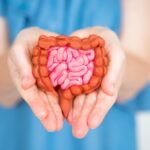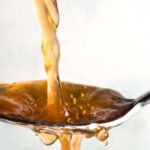Table of Contents
Drinking water
- The idea that everyone needs to drink 8 glasses of water daily is not accurate
- Hydration needs vary from person to person
What is hydration?
- Hydration is not just about water in cells
- It involves the balance of water and electrolytes inside and outside cells
- Electrolytes help water move in and out of cells through channels
Risks of overhydration
- Drinking too much water can dilute electrolytes
- This can lead to hyponatremia (low sodium in blood), which can be dangerous
- Symptoms of hyponatremia include brain inflammation and potential coma
The body’s thirst mechanism
- The body has a natural thirst mechanism to regulate water intake
- Forcing yourself to drink when not thirsty can be counterproductive
- Even athletes can face problems from drinking too much water when not thirsty
Effects of different beverages on hydration
- Caffeine-containing drinks (coffee, tea, sodas) can have a diuretic effect
- Alcohol is dehydrating and acts as a diuretic
- Sugary drinks, including fruit juices, can lead to dehydration
Sports drinks and electrolyte beverages
- Many sports drinks contain added sugar, which can be counterproductive
- A study showed that regular consumption of sports drinks led to more weight gain than sodas
- Some electrolyte powders contain high amounts of sugar (up to 3 teaspoons per serving)
Proper hydration practices
- Drink when you’re thirsty
- Don’t force yourself to drink excessive amounts of water
- Consider adding electrolytes to your water, especially during exercise or in hot weather
Testing hydration levels
- Urine color is not the most reliable indicator of hydration
- Urine specific gravity tests are more accurate
- Normal urine specific gravity ranges from 1.0 to 1.030
- A reading below 1.010 indicates mild dehydration
Factors affecting hydration needs
- Exercise intensity and duration
- Climate and temperature
- Individual metabolism
- Health conditions (e.g., prone to kidney stones may need more fluid)
So let’s dive into the details…
Drinking 8 glasses of water

You know, some years ago I did a Topic on this whole water myth that everyone needed to drink a certain amount of water or else they’re going to be dehydrated.
It kind of shook up quite a few people because everyone knows that eight glasses of water is like the law. You have to drink at least eight glasses of water because your body is mostly water.
So that topic created confusion because when you tell a person the opposite theory of what they’re basing this concept of water on, it can really put someone into a kind of confusion.
So I wanted to do this topic to give you some interesting new points on water in general in its ability to hydrate your cells.
- The previous topic challenged the “8 glasses of water” myth
- Caused confusion among viewers
- This topic aims to provide new insights on water and cell hydration
Understanding hydration
What is hydration?
First thing you need to know is what is hydration. Is hydration just water in your cells? Actually, no it’s not. How does that water get into the cell and out of the cell?
The water gets in and out of the cell through little channels that get help with electrolytes. Electrolytes are like these electrically charged minerals that in different concentrations inside and outside the cell you’ll get a flow, a certain flow either going outside the cell or going inside the cell.
- Hydration is not just water in cells
- Water moves through channels with help from electrolytes
- Electrolytes are electrically charged minerals
Balanced hydration vs. dehydration
A truly hydrated cell has the right amount of electrolytes inside and outside with the right amount of fluid. A dehydrated cell is basically an imbalance of electrolytes and fluid.
It’s not just a lack of water. In fact, if you drink too much water, you’re going to dilute certain electrolytes and create dehydration in certain parts of your body.
- Hydrated cell: balanced electrolytes and fluid
- Dehydrated cell: imbalance of electrolytes and fluid
- Excessive water intake can cause electrolyte dilution
Hyponatremia: A dangerous condition
There’s a condition called hyponatremia that means low sodium in the blood. One cause would be you just drink a lot of pure water without any salt and now you diluted this sodium throughout the cells.

It’s very, very dangerous. You can have inflammation of your brain; you can actually go into a coma.
- Hyponatremia: low sodium in blood
- Caused by drinking too much water without salt
- Can lead to brain inflammation and coma
The myth of constant water consumption
So we don’t get hydrated just from water. Now on the flip side, I’m not against water. I drink water and I think you should too, but this concept of, you know, carrying your gallon jug of water and just forcing yourself to drink all day long might not be the wisest thing you can do.
Especially if you start bypassing the normal thirst mechanism that our body was designed to tell you if you’re thirsty or not.
- Hydration is not solely from water
- Forcing constant water consumption may not be wise
- Bypassing natural thirst mechanism can be problematic
Risks of overhydration during exercise
When you’re not thirsty and you force your body to drink a lot of water, you can end up in trouble, especially if you exercise.
There’s an incredible book written by an exercise physiologist with a lot of research in long-distance runners and even ultra-marathon runners in relationship to hydration.
If they should be drinking just a ton of water when they’re not thirsty, they can end up with low sodium and actually create a big problem with their health.
- Forcing water intake when not thirsty can be risky
- Research on long-distance runners shows potential health problems
- Low sodium levels can occur from excessive water intake during exercise
The best way to stay hydrated
The impact of different beverages on hydration
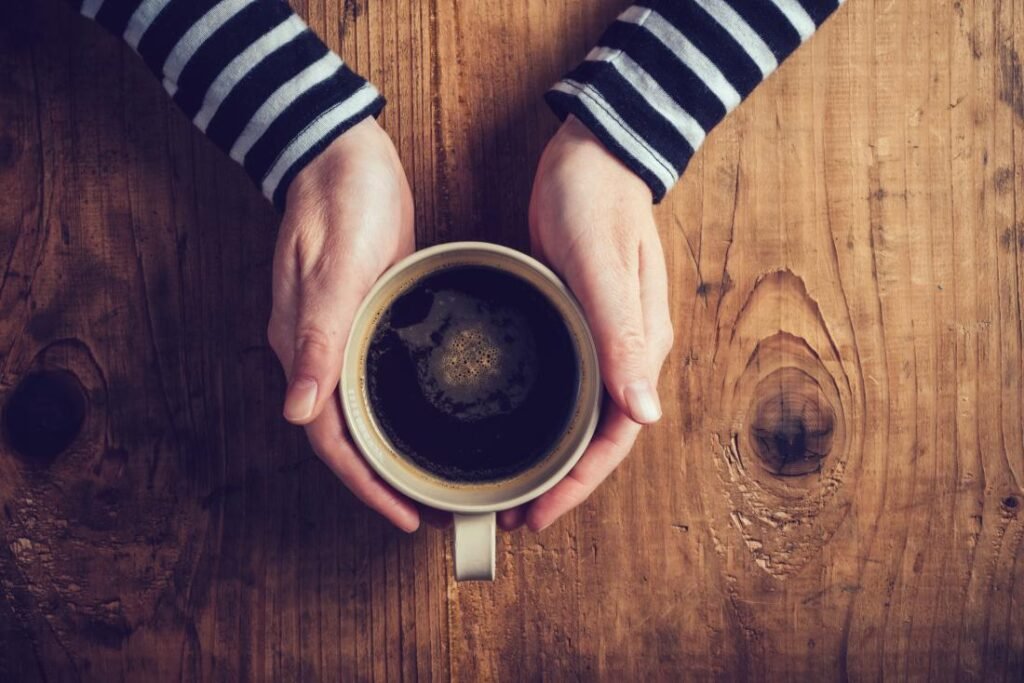
And then you have a lot of other fluids that you drink through the day that can create a diuretic effect. You can actually lose more water and become dehydrated when you drink things with caffeine like coffee, tea, sodas.
Anything you drink with caffeine is very dehydrating. And of course, alcohol, right? If you reflect back on the last time you drank a lot of alcohol, the next morning you’re going to be completely dehydrated.
That’s why you have a headache, that’s why your lips are dry, and so alcohol is a diuretic and it tends to dehydrate you as well.
- Caffeine-containing drinks can have a diuretic effect
- Alcohol is dehydrating and acts as a diuretic
- Dehydration symptoms include headaches and dry lips
The effect of sugar on hydration

And then what about fruit juice? Okay, would that be hydrating? Well, here’s the data with glucose. Let’s just take a diabetic for example.
What happens with someone with high sugar? They’re peeing a lot, they have urinary frequency, and they’re thirsty a lot too.
So the more sugar in your blood, the more your body is going to get rid of water and the more dehydrated you’re going to be. And so fruit juices, sodas, things with sugar will greatly dehydrate you.
- High blood sugar leads to increased urination and thirst
- Sugar-containing drinks can cause dehydration
- Fruit juices and sodas may not be hydrating
The problem with sports drinks

Now what’s fascinating is that you have all these electrolyte sport drinks with added sugar, and apparently the idea is that if you’re exercising, you need some sugar to replace the loss of glucose, right, when you exercise.
And they call this hydration, but is it really hydrating you? Does consuming glucose hydrate you? I’m going to tell you it dehydrates you. It pulls water from the cell.
- Sports drinks often contain added sugar
- Sugar consumption can lead to dehydration
- Glucose pulls water from cells
The Nurses’ Health Study 2: Unexpected findings
There is an interesting study which I’ll put down below. It’s called the Nurses’ Health Study 2, which they did on a certain age group from 9 to 15.
Now this study wasn’t about hydration, but it was interesting because it revealed an unknown consequence of drinking these healthy sports drinks.
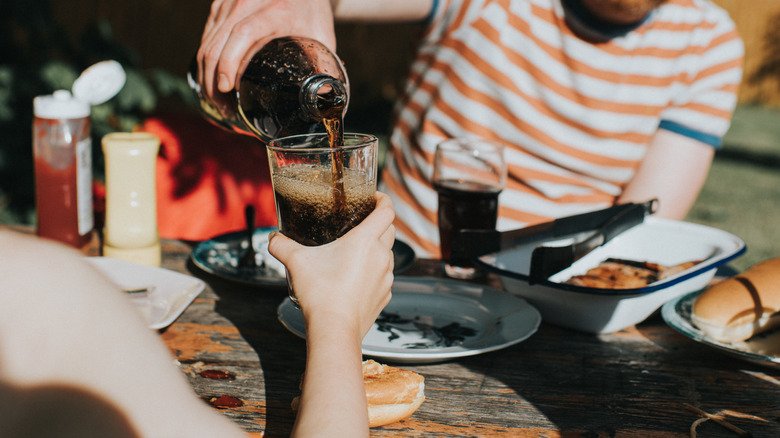
Now the study found that if a teenager or young adult was consuming at least one soda a day, they would have an extra pound of weight.
And this is what they found, and I’m going to just generalize here: teenagers that consumed one soda a day on a regular basis gained an additional two pounds of weight, whereas those who consumed at least one sports drink a day,
these so-called healthy sports drinks with electrolytes but with added sugar, gain three and a half pounds of fat extra on their bodies.
- Nurses’ Health Study 2 revealed unexpected weight gain from sports drinks
- One soda a day led to 2 pounds of weight gain
- One sports drink a day led to 3.5 pounds of fat gain
The sugar content in electrolyte drinks
So the sports drink produced more fat than the sodas. Now this is probably because the sports drinks usually come in like 32 ounces and sodas come in a 12 ouncer.
So when you look at the label, you have to look at the serving size, and rarely does anyone just drink one serving size. They drink the whole thing, and there’s more serving size in sports drinks.
Now even when people are consuming electrolyte powders, many times these electrolyte powders and electrolyte drinks, and I won’t mention any names, contain added sugar.
And some per serving size contain like 11 grams of sugar per serving size. Now there’s four grams of sugar per teaspoon, so that’s just under three teaspoons of sugar for one serving size.
and we’re not talking about like a whole bottle. We’re just talking about one serving size or one of those little stick packs of electrolytes.
- Sports drinks often contain more sugar than sodas due to larger serving sizes
- Some electrolyte powders contain added sugar
- A single serving can have up to 3 teaspoons of sugar
The quality of sugar used in electrolyte drinks
Not to mention the source of the sugar. Was it beet sugar? Probably it was. And most of the beet sugar in the U.S.
is total of GMO with traces of glyphosate, which is an herbicide. And even if they’re doing sugarcane, unless it’s organic, is going to have also traces of glyphosate. So that’s on top of the sugar effect.
- Many electrolyte drinks use beet sugar
- U.S. beet sugar often contains GMOs and glyphosate traces
- Non-organic sugarcane may also contain glyphosate
The impact of sugar on fat burning and hydration

So we have this effect of drinking more water if you’re going to add electrolytes to it, and then you have the electrolytes with glucose, which basically is going to stop any ability to burn fat.
And the only thing it probably would do for hydration is if someone had diarrhea, for example. There are types of oral rehydration therapies where they’re adding glucose to minerals because in the intestine, the glucose will help retain sodium.
So that’s a different situation than if you’re exercising and trying to be hydrated or if you’re not exercising and trying to be hydrated.
- Electrolytes with glucose can hinder fat burning
- Glucose-mineral combinations useful for diarrhea rehydration
- Different hydration needs for exercise vs. non-exercise situations
The best way to stay hydrated
To truly hydrate the cell, you need all the electrolytes. You need sodium, potassium, chlorides, calcium, and magnesium.
- Complete cell hydration requires multiple electrolytes
- Essential electrolytes: sodium, potassium, chlorides, calcium, magnesium
The danger of overhydration
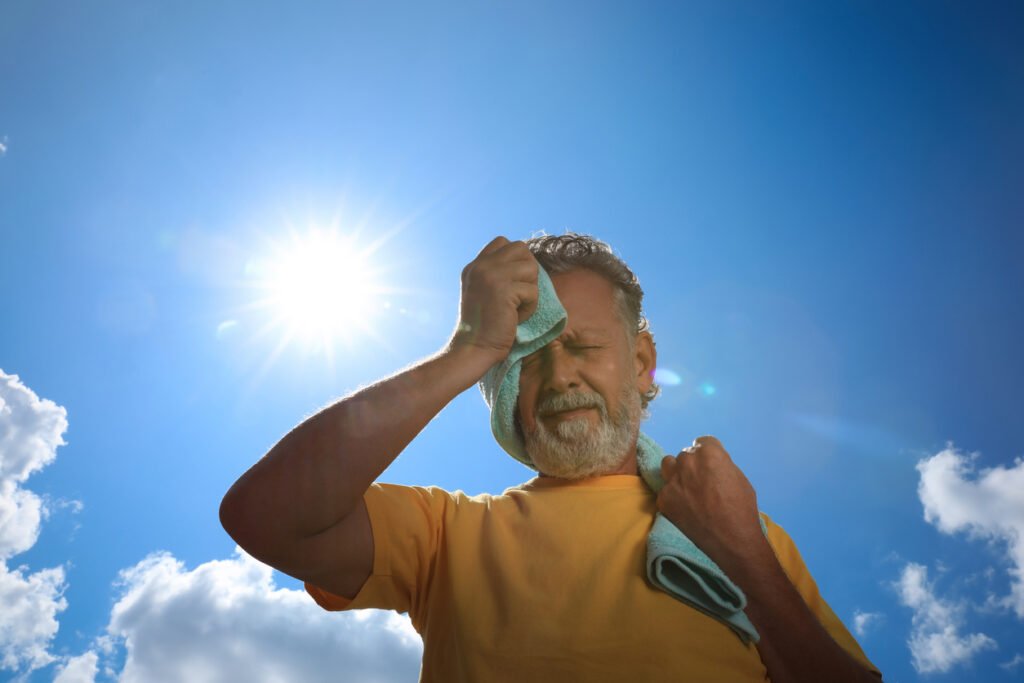
Now the professor who wrote the book “Waterlogged,” which I’m going to put a link down below, had some fascinating information in relationship to drinking more than what you’re thirsty for.
You have a thirst mechanism, and some people will say, well, you know, we don’t really know when we’re thirsty.
We just have to force our body to drink so much water, and that’s just the way it is. But he evaluated tremendous amounts of data, and he looked at studies that weren’t funded by companies like Gatorade, for example,
and he found that even runners, long-distance runners, when they drink too much water when they’re not thirsty, they get into trouble.
- “Waterlogged” book provides insights on overhydration risks
- Forcing water intake beyond thirst can be problematic
- Even long-distance runners can face issues from excessive water consumption
Listen to your body’s thirst signals
I think a really good principle would be to drink when you’re thirsty and don’t ever force yourself to drink too much. Okay? Because you can start to dilute these electrolytes.
Now on the flip side, if you’re prone to a kidney stone, you need to be drinking at least two and a half liters of fluid every single day, but I would also add electrolytes to that.
- Drink when thirsty, avoid forcing excessive water intake
- Kidney stone prevention requires 2.5 liters of fluid daily
- Add electrolytes to your fluid intake
How to know if you’re dehydrated
Testing for hydration levels
Now are there any tests that you can do to see if you’re drinking too much water? Sometimes people say, well, check your color of your urine and it should be clear, but I think there’s a better test.

In fact, it’s pretty inexpensive. You could buy on Amazon or another platform these little urine strips that measure something called specific gravity,
and that will give you a good rough estimate on whether you’re slightly dehydrated or you’re really dehydrated or you’ve been drinking too much water.
- Urine color is not the most reliable hydration indicator
- Urine strips measuring specific gravity provide better estimates
- Specific gravity tests are inexpensive and available online
Understanding specific gravity in urine
Because on this urine strip that you’re going to get, you’re going to measure a lot of different things, but specific gravity measures and compares the density,
how concentrated your urine is to actual water. Now water has a specific gravity or density of one, and urine, if it’s normal, should have a density of 1.0 to 1.030.
So if your urine specific gravity is low, okay, and what I mean by low is if it’s less than 1.010, you have mild dehydration. So the closer you are to the specific gravity of water, which is 1.000, the less electrolytes you have and the more you need to take electrolytes or drink less water.
- Normal urine specific gravity: 1.0 to 1.030
- Specific gravity below 1.010 indicates mild dehydration
- Lower specific gravity suggests need for more electrolytes or less water
Sources of electrolytes and factors affecting hydration
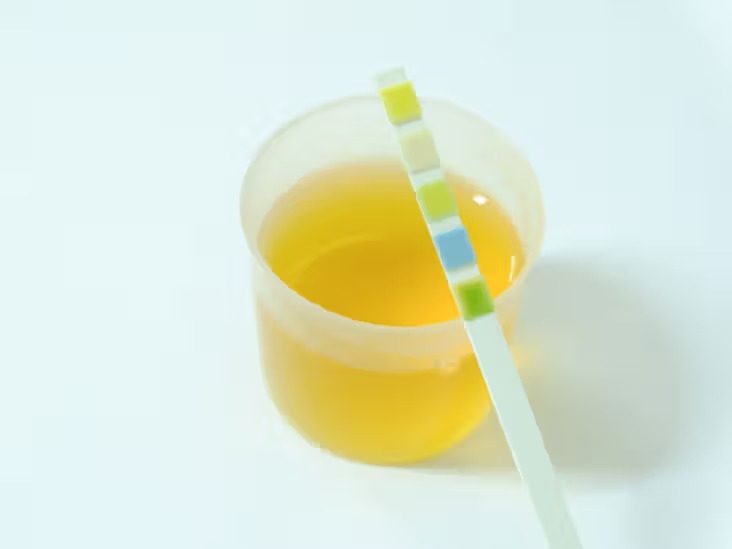
So specific gravity kind of tells you the concentration of particles in your urine, and of course, when you drink a lot of water, you dilute that.
A lot of electrolytes that you’re going to get will come from your food if you eat healthy, but also realize there are things that you’re consuming that are depleting your electrolytes too, like refined sugar, like alcohol, like the things that I mentioned that act as a diuretic.
- Healthy food provides many electrolytes
- Refined sugar and alcohol deplete electrolytes
- Diuretics can affect hydration levels
Personalizing your water intake

But this topic is primarily on just drinking water. There is a situation of drinking too much water, and you need to find the right amount for you. And so there are a lot of variables.
If you’re working out, it’s hot outside, and you have a very high metabolism, man, you need to drink a lot of water. But just make sure you drink the electrolytes with it. But for the general person who doesn’t really work out that much and it’s not summer,
I would pay attention to your thirst. I would use that as a guide and try not to force yourself to drink more than what your body really should be taking.
- Customize water intake based on personal factors
- Consider activity level, climate, and metabolism
- Use thirst as a guide for water consumption
Summary
- Water gets into your cells through small channels with help from electrolytes. A dehydrated cell has an imbalance of electrolytes and fluid, not just a lack of water. If you drink too much water, you can dilute certain electrolytes and become dehydrated.
- Water is important, but we don’t get hydrated just from water. When you’re not thirsty and force yourself to drink a lot of water, this can cause various issues, especially if you exercise.
- Other liquids like coffee, tea, soda, alcohol, and fruit juice can deplete your electrolytes and cause you to become dehydrated. Sports drinks may also cause more weight gain than soda. Even certain electrolyte powders contain a lot of sugar.
- A good principle is to drink when you’re thirsty and don’t force yourself to drink too much. It’s also essential to get all of the electrolytes and avoid things that can deplete your electrolytes.
- Keep in mind, if you’re prone to kidney stones, you should drink at least 2.5 liters of fluid with electrolytes every day.
DATA
https://www.medscape.com/viewarticle/771496?form=fpf
https://sciencing.com/effect-salt-sugar-dehydrated-cells-20371.html
FAQ
Why is water not the best for hydration?
While water is essential for hydration, it’s not always the most effective option, especially in certain situations. Water alone doesn’t contain electrolytes, which are crucial for maintaining proper fluid balance in the body. In cases of intense physical activity, extreme heat, or illness, the body may need more than just water to replenish lost electrolytes and maintain optimal hydration.
Is drinking water the best way to maintain hydration?
Drinking water is important for hydration, but it’s not always the best or only way. A balanced approach that includes water, electrolyte-rich beverages, and hydrating foods can be more effective. The body also obtains water from food sources, especially fruits and vegetables. Additionally, the timing and amount of water intake matter; sipping water throughout the day is generally more beneficial than consuming large amounts at once.
Is there a better way to hydrate than water?
While water is crucial, there can be more effective ways to hydrate in certain situations:
- Electrolyte-enhanced beverages for intense physical activity or hot weather
- Coconut water, which naturally contains electrolytes
- Milk, which provides both hydration and nutrients
- Eating water-rich foods like cucumbers, watermelon, and lettuce
- Herbal teas, which provide hydration and potential health benefits
The best hydration method often depends on individual needs and circumstances.
How to stay hydrated if you hate drinking water?
If you dislike plain water, try these alternatives:
- Infuse water with fruits, herbs, or cucumber for flavor
- Drink herbal teas (hot or iced)
- Consume water-rich foods like melons, berries, and lettuce
- Try sparkling water or add a splash of juice to plain water
- Eat soup or broths
- Drink milk or plant-based milk alternatives
Remember, many foods contribute to your daily fluid intake as well.
How to stay hydrated without drinking water
While it’s challenging to stay fully hydrated without any water, you can significantly reduce your reliance on plain water:
- Eat water-rich fruits and vegetables (e.g., cucumbers, tomatoes, oranges)
- Consume soups and broths
- Drink herbal teas or coffee in moderation
- Include milk or plant-based milk in your diet
- Eat yogurt or other high-water content dairy products
- Consume electrolyte-rich beverages when necessary
However, it’s important to note that some plain water intake is still beneficial for optimal health.
5 tips to stay hydrated
1. Carry a reusable water bottle and sip throughout the day
2. Eat water-rich foods like fruits and vegetables
3. Set reminders to drink water regularly
4. Drink a glass of water before each meal
5. Monitor your urine color – pale yellow indicates good hydration
How to properly hydrate with water
To hydrate effectively with water:
- Sip water regularly throughout the day instead of large amounts at once
- Drink water before, during, and after physical activity
- Consume water with meals to aid digestion
- Adjust intake based on climate, activity level, and individual needs
- Consider adding a pinch of salt or electrolyte mix during intense activity or hot weather
Listen to your body’s thirst signals and don’t force excessive water intake.
Is chugging water bad for hydration?
Chugging large amounts of water isn’t ideal for optimal hydration. When you consume too much water too quickly, your body may excrete the excess through urine before it can be properly absorbed. This can lead to frequent urination without effectively hydrating your body. Additionally, rapid water consumption can dilute electrolytes in your bloodstream, potentially leading to an imbalance. It’s generally more effective to sip water slowly and consistently throughout the day.
Is chugging water bad for your kidneys?
While occasional water chugging is unlikely to cause serious harm, consistently drinking large amounts of water rapidly can potentially stress your kidneys. The kidneys can only process about 800-1,000 ml of water per hour. Exceeding this amount repeatedly could lead to a condition called water intoxication or hyponatremia, where sodium levels in the blood become diluted. This can be dangerous and, in extreme cases, even life-threatening. It’s best to drink water at a steady, moderate pace to allow your body to process it effectively.
What to drink to get hydrated fast
For rapid hydration, consider:
- Oral rehydration solutions (ORS) – specially formulated to quickly replenish fluids and electrolytes
- Coconut water – natural source of electrolytes
- Sports drinks (in moderation) – contain electrolytes and some carbohydrates
- Milk – provides fluid, electrolytes, and nutrients
- Water with a pinch of salt and sugar – a homemade electrolyte solution
Remember, the best choice depends on the cause and severity of dehydration.
How to hydrate overnight
To maintain hydration during sleep:
- Drink a glass of water before bed, but not too much to avoid nighttime bathroom trips
- Keep a glass of water by your bedside for easy access if you wake up thirsty
- Consume hydrating foods with dinner (e.g., soup, fruits)
- Use a humidifier in your bedroom to prevent moisture loss through breathing
- Avoid alcohol and excessive salt before bed, as these can contribute to dehydration
Balance your fluid intake to stay hydrated without disrupting your sleep.
Is it bad to chug water when dehydrated?
While it might be tempting to drink large amounts of water quickly when dehydrated, it’s not the most effective approach. Chugging water when severely dehydrated can lead to:
- Nausea or vomiting if consumed too rapidly
- Potential electrolyte imbalance if water isn’t accompanied by necessary minerals
- Inefficient absorption, as the body may excrete excess water before proper hydration
Instead, sip water slowly and steadily. If severely dehydrated, consider an oral rehydration solution or seek medical attention for proper treatment.



